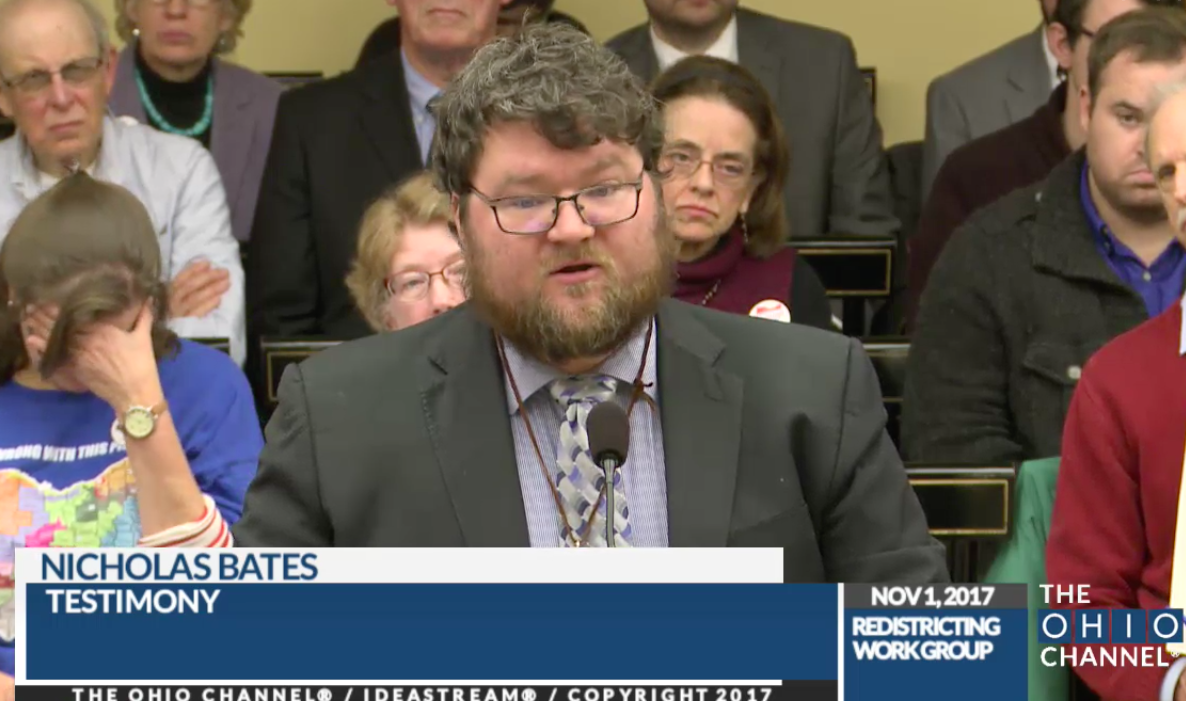HNO Director, Nick Bates, testifies on November 1st in support of bi-partisan redistricting reform. Bates joins numerous other advocates calling on the state legislature to adopt a bi-partisan plan to pass congressional redistricting reform. Below is a copy of our testimony:
Good evening. My name is Nicholas Bates and I serve as a Deacon in the Evangelical Lutheran Church in America (ECLA) called by the Southern Ohio Synod to serve as the Director of the Hunger Network in Ohio. The Hunger Network is an ecumenical ministry that seeks long-term solutions to hunger by addressing root causes. The Hunger Network works with the Northeast, Southern and Northwest Ohio Synods of the ELCA, the Eastern and Western Conferences of the United Methodist Church, the Ohio and Southern Ohio Diocese of the Episcopal Church, and the Central Southeast Association of the United Church of Christ.
As I finish my first full year as director of the Hunger Network, I have realized that people of faith love to be authentic about an issue, because we approach it from a position of faith and not a position of politics. Our congregations are filled with people from all political stripes and clergy appreciate the views and values that each person brings to the community. We believe that only through authentic and honest discourse and debate can we solve some of our most pressing problems in Ohio – like infant mortality, hunger, and poverty. Most clergy that I have spoken with have voted for people in both political parties. They base their personal votes (believe it or not) on a candidate’s ability to serve the community and address the real needs that they see.
This is why we encourage you to put forward a bi-partisan plan to reform congressional redistricting in Ohio. Like any good sermon, I will break it down to three main points.
Competitive districts will help us to listen to one another. As a person of faith, I am called to right relationship with my neighbor and right relationship requires us to listen to one another. Competitive districts will require candidates for office to answer difficult questions, listen to the voters, and engage their opponents in a way that doesn’t occur when seats are ‘safe.’
Second, compact districts will encourage community. As congregations bring people together to talk about issues, we should easily know whose district we are in. At my small congregation here in Columbus, we have members from three separate congressional districts – weakening our collective voice on issues that we care about.
Finally, we need to have faith in the electoral process. Our system of democracy requires faith by the people that the process is fair. If a candidate wins or loses, we need to trust that the outcome represents the will of the people. Gerrymandering undercuts the faith needed for democracy to work.
When I preach, I wear a towel around my waist to remind me of the story of Jesus washing the feet of his Disciples – it is a story about our call to humility and service in the world. Elected officials are also servants and have a similar call to humility and service, and I believe fair and competitive districts will equip our public servants in Washington with their towel to better serve our communities. We are calling on you today to adopt a bi-partisan congressional redistricting plan that will best serve the people.


